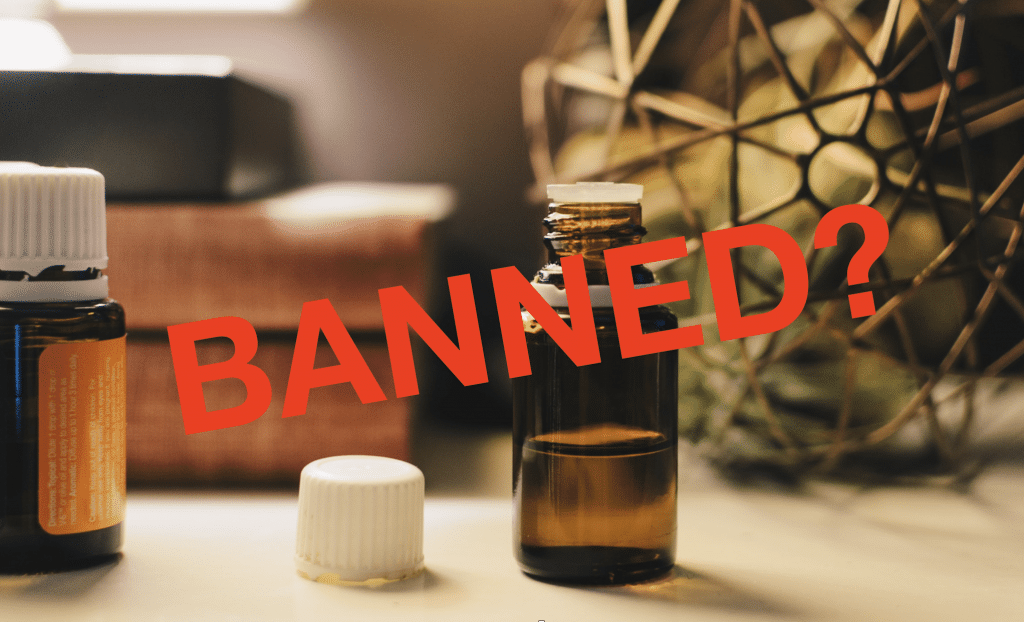Many CBD and hemp-derived products could face an immediate ban across Europe after the European Food Safety Authority last week reclassified cannabidiol (CBD) as a ‘Novel Food’.
Media reports suggest that national enforcement bodies – including the Food Standards Agency (FSA) – are already taking action to start removing products from sale.
Industry groups across Europe are now urgently seeking clarification on whether all, or just certain forms of CBD-based products, will be affected by a ban.
Novel Food status – defined as food that has not been consumed to a ‘significant degree’ by humans in the EU before 1997 – requires products to undergo additional safety and ingredients verification testing. To be able to be sold legally in the EU they need to acquire a novel food licence.
It is causing extensive confusion and concern amongst retailers and manufacturers, who have been legally making and selling CBD-based products for several decades
Following last week’s developments the EU Novel Food Catalogue now officially lists CBD as an unauthorized Novel Food and notes: “Cannabis sativa L., extracts of Cannabis sativa L. and derived products containing cannabinoids are considered novel foods as a history of consumption has not been demonstrated. This applies to both the extracts themselves and any products to which they are added as an ingredient (such as hemp seed oil). This also applies to extracts of other plants containing cannabinoids.”
Some reports suggest that the amendment follows pressure from enforcement agencies in the UK, France, Germany, Italy and the Netherlands. Concern over the regulatory treatment of CBD products – particularly high-potency products – has grown as the category has skyrocketed in size and value.
The Cannabis Trades Association (CTA) estimates that the number of consumers in Britain using CBD products has quadrupled to 500,000 over a two-year period. The category has also quickly migrated from specialist health channels into mainstream food retail, with the food industry weekly The Grocer asking recently ‘Is CBD the next growth category for grocery?’. Coca Cola has said it is ‘closely watching’ the growth of CBD ‘as an ingredient in functional wellness beverages’.
The new classification of CBD as a Novel Food has shocked and dismayed the natural products industry, where it has provided a valuable growth category at a time of highly challenging trading conditions on the high street.
‘Mystifying’ development
The Health Food Manufacturers Association (HFMA) has called the European Commission’s ‘U-turn’ on the classification of CBD products as novel foods ‘mystifying’, adding: “It is causing extensive confusion and concern amongst retailers and manufacturers, who have been legally making and selling CBD-based products for several decades.”
In a statement, the HFMA continues: “Rather than consult food businesses on the presence of products on the market before May 1997, as would be expected, the Commission announced its new position on CBD as part of a general update to their Novel Food Catalogue. They have given no further explanation, do not appear to have consulted with stakeholders as they are required to do, and are seeking to apply what would in effect be a blanket requirement for approval rather than considering products on a case-by-case basis, which is the required approach.”
The HFMA says it has secured an urgent meeting with the FSA, and says it will ask the Agency to ‘press the Commission for a detailed explanation for this change to the Novel Food Catalogue, and why industry has not been consulted’.
They have given no further explanation, do not appear to have consulted with stakeholders as they are required to do
Much of the current focus by industry is being directed at the scope of the ban – which products and processes are affected, and in which in countries – and its likely duration. In the absence to date of official guidance on this from the FSA, some supplement and food manufacturers have been referred to guidance issued by the Food Safety Authority of Ireland (FSAI).
The FSAI guidance suggests that it is the method of processing that determines if a CBD product will be affected by a ban. The FSAI notes: “Generally speaking, hemp oil obtained by cold-pressing the seeds or other parts of the hemp plant does not require authorization. This is because hemp oil was consumed in the EU to a significant degree before 1997. If, however, the CBD/hemp oil is subjected to certain forms of extraction or purification techniques, then a novel food authorization may be required, as there may be an accompanying increase in undesirable constituents. A typical example is hemp oil subjected to supercritical CO2 extraction.”
This information has led to urgent correspondence between wholesalers and suppliers, with brand owners and manufacturers being asked to declare information on processing methods and final product status.
What happens next?
Regulatory experts suspect that Individual EU member states will decide on their own position on the classification of CBD, with some likely to take stronger enforcement action than others. Mail-order VMS supplier Healthspan, for whom CBD products have rapidly become an important category, says it believes that in the UK the FSA is ‘likely to give businesses a transition period in which they can continue to sell CBD products for a time, perhaps while a safety assessment under the Novel Food Regulation takes place’.
In a statement issued to NPN a spokesperson at the FSA said: “We are considering the way forward in light of this clarification at EU level. We are meeting with relevant industry representative bodies, local authorities and other stakeholders to clarify how to achieve compliance in the marketplace in a proportionate manner.”











